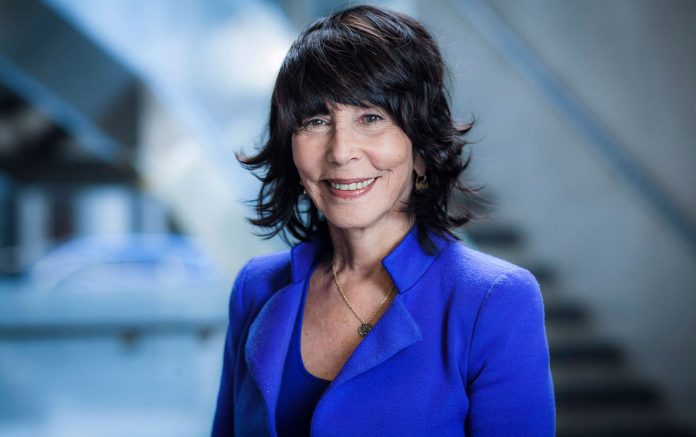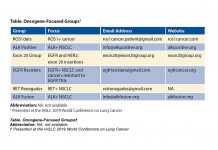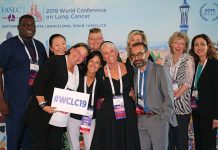By Lori Alexander, MTPW, ELS, MWC®
Ellen Sigal’s unsurpassed passion for cancer research advocacy was ignited 30 years ago after the devastating loss of her younger sister Gale to breast cancer. Her drive to make a difference led her to establish Friends of Cancer Research (Friends), a nonprofit advocacy organization based in Washington, DC. Since then, Dr. Sigal has become a major leader and influence in the cancer research community, with service on the boards of several high-profile federal agencies, academic research centers, and other advocacy organizations. As a key player in the cancer research advocacy community over the past three decades, she has firsthand knowledge of how that community has changed, what it has achieved, and what challenges it still faces.
“Cancer advocacy has evolved so that organizations today no longer exist solely to raise awareness of a problem; they are now catalysts to the solutions themselves. This shift provides cancer research organizations with a more active role of input, funding, prioritization, and strategy to benefit patients,” says Dr. Sigal.
As founder and chair of Friends, Dr. Sigal is dedicated to using her voice to make sure the patient’s voice is heard. She supplements her compassion for the patient experience with strong leadership skills and a keen business acumen to develop partnerships and advocate for policies and research models that ensure that patients have access to treatments in the safest and quickest way possible. She notes that the rise of the patient voice is the greatest achievement in the cancer research community, with the patient voice becoming integral to drug development, outcomes research, and treatment decision-making.
Access to Treatment Safely and Quickly
Access to safe and effective drug treatments is the mission of Friends, and Dr. Sigal brings her passion for that mission beyond her organization. She serves as Chair of the inaugural board of directors of the Reagan-Udall Foundation, an independent nonprofit organization that works to modernize medical product development, accelerate innovation, and enhance product safety in collaboration with the US Food and Drug Administration (FDA). She is committed to ensuring that patients’ treatments are safe, even as treatment options begin to decrease and desperation for new treatments rises. She believes that patients with terminal disease deserve the right to access experimental treatments, but she is not sure that new Right-to-Try legislation, which has been approved in more than 30 states in the United States, is the best answer to this complex problem.
“It is universally agreed upon that dying patients should have access to promising experimental therapies when all other available options have been exhausted, and Right-to-Try legislation is a path toward achieving that goal. However, the FDA has a compassionate use process in place for such patients and approves more than 99% of these requests. Right-to-Try legislation, as it is currently written, seeks to remove FDA from this process, which could put us in dangerous territory, as it could unknowingly allow ill-intentioned individuals to enter the market and subject patients to significant harm. What we need is greater clarity on how to navigate the process and increased transparency and streamlining of processes for more rapid decisions on access in these difficult situations. The recently passed 21st Century Cures Act includes steps to address these concerns.”
Dr. Sigal has also been involved in efforts to reshape clinical trials to accelerate the evaluation of targeted therapies. In an unprecedented public-private collaboration, Friends has worked with the National Cancer Institute (NCI), NCI’s National Clinical Trials Network, SWOG Cancer Research, the Foundation for the National Institutes of Health, and several pharmaceutical companies and lung cancer advocacy groups to establish the Lung Cancer Master Protocol (Lung- MAP) trial. The first-of-its-kind clinical trial design, developed through a series of workshops, forums, and working groups, involves the use of a multidrug, targeted screening approach to match patients with substudies testing investigational new treatments based on the patients’ unique tumor profiles.
Dr. Sigal notes, “Since its implementation, we have been involved in constant review of the trial to ensure Lung-MAP is evolving in a manner that not only provides researchers and drug developers the information they need to effectively develop treatments but also provides patients with the best experimental treatments possible.”
Drug Development
“In recent years, the community has realized that patients’ voices are significant because no one else can better relay information as to how a drug or therapy is working and affecting quality of life than patients themselves,” says Dr. Sigal.
“With advancements in technology, we now have better tools to help capture the patient voice and aggregate data on their experience. The capture of this type of data holds the potential for researchers and drug developers to generate more accurate information about what patients might expect from a treatment and even hold the potential for new trial designs that will assess endpoints that are most meaningful to patients.”
Outcomes Research
Dr. Sigal is currently serving her second 6-year term on the Board of Governors of the Patient-Centered Outcomes Research Institute (PCORI), an independent organization created by Congress to initiate research that helps patients, physicians, and caregivers make informed health care decisions by promoting comparative effectiveness research. As of March 2017, the institute has awarded $194 million to fund 65 comparative clinical effectiveness research studies and methods projects related to cancer. Lung cancer is the third most studied cancer type, with 10 projects currently dedicated to evaluating lung cancer from a comparative clinical effectiveness standpoint. Among the projects that PCORI has funded are pilot projects for engaging patients, doctors, and health care experts in creating guidelines for lung cancer screening, and creating a computerized decision-support program to help patients with cancer understand and manage their symptoms.
Treatment Decision-Making
“As precision medicine becomes more common and a reality for patients, they will want to be more involved in their treatment decisions,” says Dr. Sigal. “As a result, it will be more important for physicians to view their relationship with patients as a partnership, in which they provide information to patients so they have input on their treatment decisions. In turn, patients will need to provide comprehensive information on quality of life and the impact of treatment to their physicians so that together, as a team, they can make the best treatment decisions for the patient.” She adds that the research community needs an increased commitment from all sectors to collaboratively validate and rapidly implement instruments that add quality-of-life measures to clinical trials.
Supporting the Patient Voice
Dr. Sigal calls on IASLC members to support incorporation of the patient voice by making educational programs available to patients that will help them have meaningful conversations with physicians and researchers. One such program is the newly launched Friends initiative, ProgressForPatients.org. This initiative gives patients and their advocates the opportunity to participate in education that will help them communicate effectively with drug researchers, developers, and regulators, and ultimately will help patients learn when and where to add their voice and be better equipped to communicate their needs to advance health outcomes.
“By providing their patients with the ability to participate in a program such as ProgressForPatients.org, physicians can be more open to embracing the patient voice.”
Remaining Challenges and Opportunities
The greatest remaining problem is the difficulty with sharing information, says Dr. Sigal. “Great progress is being made, but we still need all sectors to work together to solve this problem. Different systems, lack of sharing tissue, outcomes, and so on, is a major concern.”
She adds that thoracic oncologists help support cancer research advocacy with their frontline work advancing the field through biomarker identification, immunotherapy, and combination therapy. Thoracic oncologists can further their support by engaging in open and detailed conversations with their patients.
“This will open the door for patients to be more involved in their treatment decisions and provide the oncologist the opportunity to learn from the patient about the issues they are experiencing related to their treatment plan,” says Dr. Sigal. “Physicians should also have active and open dialogues with patients about the importance of participating in clinical trials and helping them navigate ongoing trials that meet their needs.”
Dr. Sigal’s tireless efforts prove her point about the evolution of cancer advocacy: she has certainly been a catalyst to solutions within the cancer research community. ✦











